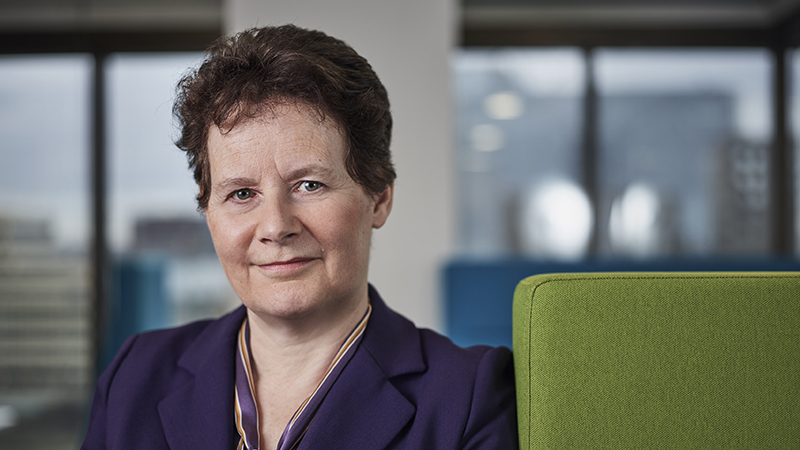“Keep it simple” is a well-worn mantra that can be applied in most circumstances and is the first thing that springs to Rosemary Banyard’s mind when talking about lessons learned during her career. When it comes to choosing which firms to invest in, the manager of the VT Downing Unique Opportunities Fund says “companies that do best are ones that focus on doing one thing well”.
“Being easy to understand is important. If a company has lots of different lines of business, it’s hard for management to grasp the whole piece.”
In a process honed during her more than 40-year career, which includes nearly two decades at Schroders, Banyard says there are a couple of ways she can test how complicated businesses are. “This goes back to the early years of my investment career when there was a period where industrial conglomerates were in vogue before they got into difficulties and went out of fashion.
“Ever since then, I’ve been much more comfortable with investing in businesses that are simple.”
The tests Banyard uses are, “Can I explain what a company does in a few sentences?” and, after reading a quarterly report, “Can I write a paragraph, without referring to any notes, explaining clearly why I invested in this company?”
When the tide goes out
An extension of Banyard’s simplicity mantra is “to avoid highly acquisitive companies”. She concedes there are “a few honourable exceptions” but says she has “noticed where companies do lots of ‘strategic’ acquisitions, you often find out later the management team who did the deal has come and gone, the acquisition was never properly integrated and that leads to writedowns”.
“The pain of that can linger for years,” she adds. Banyard expects a lot more impairments will be triggered in 2023 on the back of rising interest rates. “It goes back to Warren Buffett’s comment about when the tide goes out, you find out who is swimming naked. In this context, we see who has made acquisitions they will have to impair.”
True test
On a related point, Banyard notes a statement she “gets quite wound up about” is where acquisitions are described and promoted as ‘enhancing earnings per share’ and that is because “it’s not a real test”.
“When interest rates are low, and you spend cash on an acquisition, it would be surprising if it wasn’t earnings-enhancing. It is not a meaningful statement. A true test is the return you are getting on the money you have spent, and there is not enough focus on that.”
She adds: “There are still quite a lot of sell-side brokers who publish research notes, and you can look through them but not actually find what the return on capital of the company is. There is no discussion on whether those returns are improving or deteriorating, and why that might be.
“There could be all sorts of reasons, good or bad, as to why this information is not readily shared, but it’s still relatively rare to see that kind of discussion,” she adds. “Yet, you can have two businesses with the same capital employed and one is making twice the return of the other. Which would you rather own?”
Down the tracks
This trio of interconnected lessons has been forged over Banyard’s career. “Time and again companies are doing deals and the investment community is getting terribly excited about the earnings upgrade, only for later down the tracks you see the pain and the costs that come.
“It just feels a much more resilient strategy to focus on companies that have grown organically or perhaps made bolt-on acquisitions that are easily understood or fit with a strong market position and have a clear strategy.”
BIOGRAPHY
Rosemary Banyard began her career with James Capel & Co as a senior investment analyst before becoming a fund manager at AIB Govett. She developed a reputation as one of the leading female fund managers in the UK after joining Schroders in 1997. For almost 20 years she ran the Schroder UK Smaller Companies Fund with Andy Brough and was for many years lead manager of the award-winning Schroder Mid Cap Fund. In 2016, she joined Sanford DeLand to launch the Free Spirit Fund before moving to Downing in March 2020 to launch and manage VT Downing Unique Opportunities.
This article first appeared in the January edition of Portfolio Adviser Magazine









